You are using an outdated browser. Upgrade your browser today or install Google Chrome Frame to better experience this site.

Greece Traveler View
Travel health notices, vaccines and medicines, non-vaccine-preventable diseases, stay healthy and safe.
- Packing List
After Your Trip
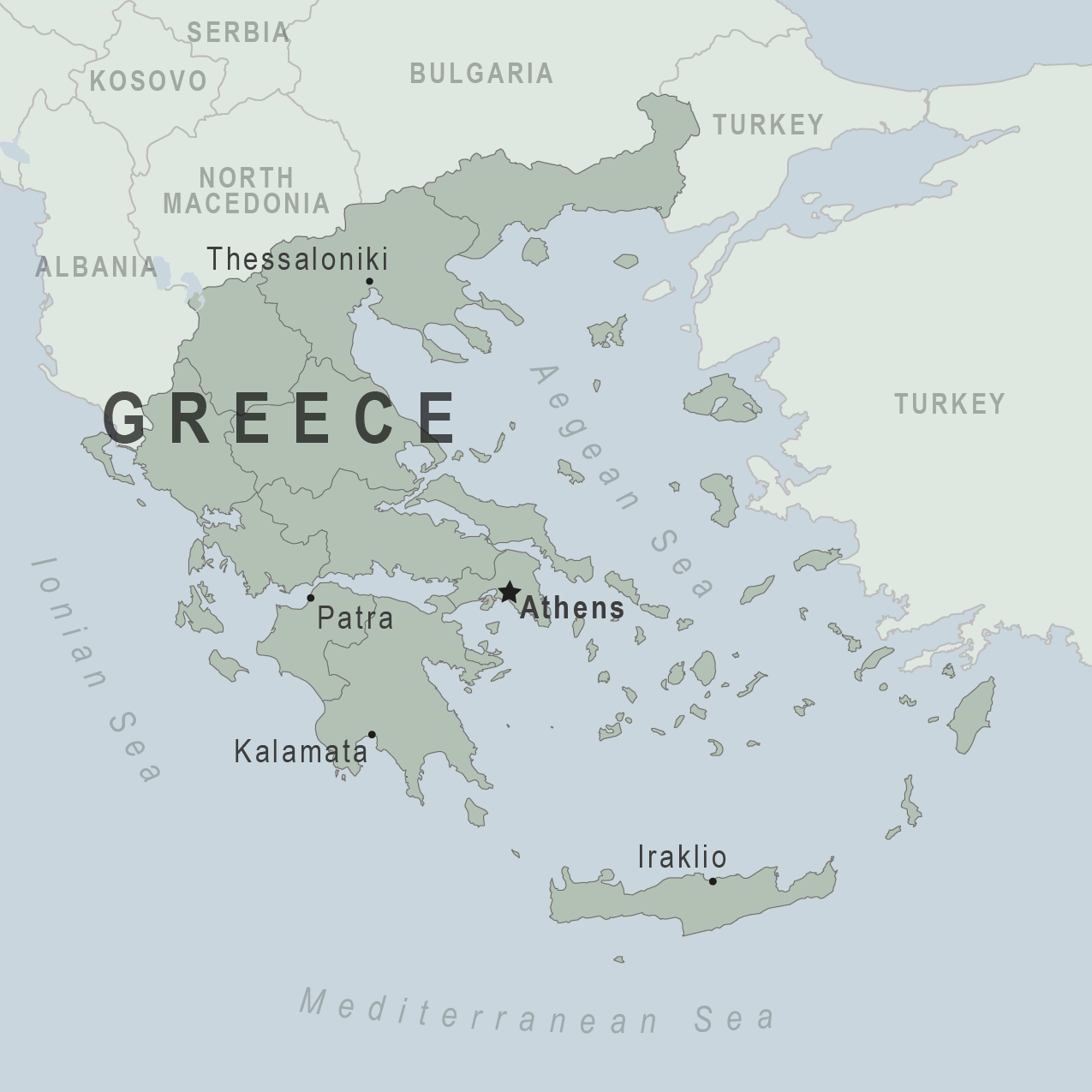
There are no notices currently in effect for Greece.
⇧ Top
Check the vaccines and medicines list and visit your doctor at least a month before your trip to get vaccines or medicines you may need. If you or your doctor need help finding a location that provides certain vaccines or medicines, visit the Find a Clinic page.
Routine vaccines
Recommendations.
Make sure you are up-to-date on all routine vaccines before every trip. Some of these vaccines include
- Chickenpox (Varicella)
- Diphtheria-Tetanus-Pertussis
- Flu (influenza)
- Measles-Mumps-Rubella (MMR)
Immunization schedules
All eligible travelers should be up to date with their COVID-19 vaccines. Please see Your COVID-19 Vaccination for more information.
COVID-19 vaccine
Hepatitis A
Consider hepatitis A vaccination for most travelers. It is recommended for travelers who will be doing higher risk activities, such as visiting smaller cities, villages, or rural areas where a traveler might get infected through food or water. It is recommended for travelers who plan on eating street food.
Hepatitis A - CDC Yellow Book
Dosing info - Hep A
Hepatitis B
Recommended for unvaccinated travelers younger than 60 years old traveling to Greece. Unvaccinated travelers 60 years and older may get vaccinated before traveling to Greece.
Hepatitis B - CDC Yellow Book
Dosing info - Hep B
Cases of measles are on the rise worldwide. Travelers are at risk of measles if they have not been fully vaccinated at least two weeks prior to departure, or have not had measles in the past, and travel internationally to areas where measles is spreading.
All international travelers should be fully vaccinated against measles with the measles-mumps-rubella (MMR) vaccine, including an early dose for infants 6–11 months, according to CDC’s measles vaccination recommendations for international travel .
Measles (Rubeola) - CDC Yellow Book
Dogs infected with rabies are not commonly found in Greece.
If rabies exposures occur while in Greece, rabies vaccines are typically available throughout most of the country.
Rabies pre-exposure vaccination considerations include whether travelers 1) will be performing occupational or recreational activities that increase risk for exposure to potentially rabid animals and 2) might have difficulty getting prompt access to safe post-exposure prophylaxis.
Please consult with a healthcare provider to determine whether you should receive pre-exposure vaccination before travel.
For more information, see country rabies status assessments .
Rabies - CDC Yellow Book
Avoid contaminated water
Leptospirosis
How most people get sick (most common modes of transmission)
- Touching urine or other body fluids from an animal infected with leptospirosis
- Swimming or wading in urine-contaminated fresh water, or contact with urine-contaminated mud
- Drinking water or eating food contaminated with animal urine
- Avoid contaminated water and soil
- Avoid floodwater
Clinical Guidance
Avoid bug bites.
Crimean-Congo Hemorrhagic fever
- Tick bite
- Touching the body fluids of a person or animal infected with CCHF
- Avoid Bug Bites
Leishmaniasis
- Sand fly bite
Tick-borne Encephalitis
Tickborne Encephalitis
Airborne & droplet
- Breathing in air or accidentally eating food contaminated with the urine, droppings, or saliva of infected rodents
- Bite from an infected rodent
- Less commonly, being around someone sick with hantavirus (only occurs with Andes virus)
- Avoid rodents and areas where they live
- Avoid sick people
Tuberculosis (TB)
- Breathe in TB bacteria that is in the air from an infected and contagious person coughing, speaking, or singing.
Learn actions you can take to stay healthy and safe on your trip. Vaccines cannot protect you from many diseases in Greece, so your behaviors are important.
Eat and drink safely
Food and water standards around the world vary based on the destination. Standards may also differ within a country and risk may change depending on activity type (e.g., hiking versus business trip). You can learn more about safe food and drink choices when traveling by accessing the resources below.
- Choose Safe Food and Drinks When Traveling
- Water Treatment Options When Hiking, Camping or Traveling
- Global Water, Sanitation and Hygiene | Healthy Water
- Avoid Contaminated Water During Travel
You can also visit the Department of State Country Information Pages for additional information about food and water safety.
Prevent bug bites
Although Greece is an industrialized country, bug bites here can still spread diseases. Just as you would in the United States, try to avoid bug bites while spending time outside or in wooded areas.
What can I do to prevent bug bites?
- Cover exposed skin by wearing long-sleeved shirts, long pants, and hats.
- Use an appropriate insect repellent (see below).
- Consider using permethrin-treated clothing and gear if spending a lot of time outside. Do not use permethrin directly on skin.
What type of insect repellent should I use?
- FOR PROTECTION AGAINST TICKS AND MOSQUITOES: Use a repellent that contains 20% or more DEET for protection that lasts up to several hours.
- Picaridin (also known as KBR 3023, Bayrepel, and icaridin)
- Oil of lemon eucalyptus (OLE) or para-menthane-diol (PMD)
- 2-undecanone
- Always use insect repellent as directed.
What should I do if I am bitten by bugs?
- Avoid scratching bug bites, and apply hydrocortisone cream or calamine lotion to reduce the itching.
- Check your entire body for ticks after outdoor activity. Be sure to remove ticks properly.
What can I do to avoid bed bugs?
Although bed bugs do not carry disease, they are an annoyance. See our information page about avoiding bug bites for some easy tips to avoid them. For more information on bed bugs, see Bed Bugs .
For more detailed information on avoiding bug bites, see Avoid Bug Bites .
Stay safe outdoors
If your travel plans in Greece include outdoor activities, take these steps to stay safe and healthy during your trip:
- Stay alert to changing weather conditions and adjust your plans if conditions become unsafe.
- Prepare for activities by wearing the right clothes and packing protective items, such as bug spray, sunscreen, and a basic first aid kit.
- Consider learning basic first aid and CPR before travel. Bring a travel health kit with items appropriate for your activities.
- If you are outside for many hours in the heat, eat salty snacks and drink water to stay hydrated and replace salt lost through sweating.
- Protect yourself from UV radiation : use sunscreen with an SPF of at least 15, wear protective clothing, and seek shade during the hottest time of day (10 a.m.–4 p.m.).
- Be especially careful during summer months and at high elevation. Because sunlight reflects off snow, sand, and water, sun exposure may be increased during activities like skiing, swimming, and sailing.
- Very cold temperatures can be dangerous. Dress in layers and cover heads, hands, and feet properly if you are visiting a cold location.
Stay safe around water
- Swim only in designated swimming areas. Obey lifeguards and warning flags on beaches.
- Do not dive into shallow water.
- Avoid swallowing water when swimming. Untreated water can carry germs that make you sick.
- Practice safe boating—follow all boating safety laws, do not drink alcohol if you are driving a boat, and always wear a life jacket.
Keep away from animals
Most animals avoid people, but they may attack if they feel threatened, are protecting their young or territory, or if they are injured or ill. Animal bites and scratches can lead to serious diseases such as rabies.
Follow these tips to protect yourself:
- Do not touch or feed any animals you do not know.
- Do not allow animals to lick open wounds, and do not get animal saliva in your eyes or mouth.
- Avoid rodents and their urine and feces.
- Traveling pets should be supervised closely and not allowed to come in contact with local animals.
- If you wake in a room with a bat, seek medical care immediately. Bat bites may be hard to see.
All animals can pose a threat, but be extra careful around dogs, bats, monkeys, sea animals such as jellyfish, and snakes. If you are bitten or scratched by an animal, immediately:
- Wash the wound with soap and clean water.
- Go to a doctor right away.
- Tell your doctor about your injury when you get back to the United States.
Reduce your exposure to germs
Follow these tips to avoid getting sick or spreading illness to others while traveling:
- Wash your hands often, especially before eating.
- If soap and water aren’t available, clean hands with hand sanitizer (containing at least 60% alcohol).
- Don’t touch your eyes, nose, or mouth. If you need to touch your face, make sure your hands are clean.
- Cover your mouth and nose with a tissue or your sleeve (not your hands) when coughing or sneezing.
- Try to avoid contact with people who are sick.
- If you are sick, stay home or in your hotel room, unless you need medical care.
Avoid sharing body fluids
Diseases can be spread through body fluids, such as saliva, blood, vomit, and semen.
Protect yourself:
- Use latex condoms correctly.
- Do not inject drugs.
- Limit alcohol consumption. People take more risks when intoxicated.
- Do not share needles or any devices that can break the skin. That includes needles for tattoos, piercings, and acupuncture.
- If you receive medical or dental care, make sure the equipment is disinfected or sanitized.
Know how to get medical care while traveling
Plan for how you will get health care during your trip, should the need arise:
- Carry a list of local doctors and hospitals at your destination.
- Review your health insurance plan to determine what medical services it would cover during your trip. Consider purchasing travel health and medical evacuation insurance for things your regular insurance will not cover.
- Carry a card that identifies, in the local language, your blood type, chronic conditions or serious allergies, and the generic names of any medicines you take.
- Bring copies of your prescriptions for medicine and for eye glasses and contact lenses.
- Some prescription drugs may be illegal in other countries. Call Greece’s embassy to verify that all of your prescription(s) are legal to bring with you.
- Bring all the medicines (including over-the-counter medicines) you think you might need during your trip, including extra in case of travel delays. Ask your doctor to help you get prescriptions filled early if you need to.
Many foreign hospitals and clinics are accredited by the Joint Commission International. A list of accredited facilities is available at their website ( www.jointcommissioninternational.org ).
Select safe transportation
Motor vehicle crashes are the #1 killer of healthy US citizens in foreign countries.
Be smart when you are traveling on foot.
- Use sidewalks and marked crosswalks.
- Pay attention to the traffic around you, especially in crowded areas.
- Remember, people on foot do not always have the right of way in other countries.
Riding/Driving
Choose a safe vehicle.
- Choose official taxis or public transportation, such as trains and buses.
- Make sure there are seatbelts.
- Avoid overcrowded, overloaded, top-heavy buses and minivans.
- Avoid riding on motorcycles or motorbikes, especially motorbike taxis. (Many crashes are caused by inexperienced motorbike drivers.)
- Choose newer vehicles—they may have more safety features, such as airbags, and be more reliable.
- Choose larger vehicles, which may provide more protection in crashes.
Think about the driver.
- Do not drive after drinking alcohol or ride with someone who has been drinking.
- Consider hiring a licensed, trained driver familiar with the area.
- Arrange payment before departing.
Follow basic safety tips.
- Wear a seatbelt at all times.
- Sit in the back seat of cars and taxis.
- When on motorbikes or bicycles, always wear a helmet. (Bring a helmet from home, if needed.)
- Do not use a cell phone or text while driving (illegal in many countries).
- Travel during daylight hours only, especially in rural areas.
- If you choose to drive a vehicle in Greece, learn the local traffic laws and have the proper paperwork.
- Get any driving permits and insurance you may need. Get an International Driving Permit (IDP). Carry the IDP and a US-issued driver's license at all times.
- Check with your auto insurance policy's international coverage, and get more coverage if needed. Make sure you have liability insurance.
- Avoid using local, unscheduled aircraft.
- If possible, fly on larger planes (more than 30 seats); larger airplanes are more likely to have regular safety inspections.
- Try to schedule flights during daylight hours and in good weather.
Helpful Resources
Road Safety Overseas (Information from the US Department of State): Includes tips on driving in other countries, International Driving Permits, auto insurance, and other resources.
The Association for International Road Travel has country-specific Road Travel Reports available for most countries for a minimal fee.
Maintain personal security
Use the same common sense traveling overseas that you would at home, and always stay alert and aware of your surroundings.
Before you leave
- Research your destination(s), including local laws, customs, and culture.
- Monitor travel advisories and alerts and read travel tips from the US Department of State.
- Enroll in the Smart Traveler Enrollment Program (STEP) .
- Leave a copy of your itinerary, contact information, credit cards, and passport with someone at home.
- Pack as light as possible, and leave at home any item you could not replace.
While at your destination(s)
- Carry contact information for the nearest US embassy or consulate .
- Carry a photocopy of your passport and entry stamp; leave the actual passport securely in your hotel.
- Follow all local laws and social customs.
- Do not wear expensive clothing or jewelry.
- Always keep hotel doors locked, and store valuables in secure areas.
- If possible, choose hotel rooms between the 2nd and 6th floors.
Healthy Travel Packing List
Use the Healthy Travel Packing List for Greece for a list of health-related items to consider packing for your trip. Talk to your doctor about which items are most important for you.
Why does CDC recommend packing these health-related items?
It’s best to be prepared to prevent and treat common illnesses and injuries. Some supplies and medicines may be difficult to find at your destination, may have different names, or may have different ingredients than what you normally use.
If you are not feeling well after your trip, you may need to see a doctor. If you need help finding a travel medicine specialist, see Find a Clinic . Be sure to tell your doctor about your travel, including where you went and what you did on your trip. Also tell your doctor if you were bitten or scratched by an animal while traveling.
For more information on what to do if you are sick after your trip, see Getting Sick after Travel .
Map Disclaimer - The boundaries and names shown and the designations used on maps do not imply the expression of any opinion whatsoever on the part of the Centers for Disease Control and Prevention concerning the legal status of any country, territory, city or area or of its authorities, or concerning the delimitation of its frontiers or boundaries. Approximate border lines for which there may not yet be full agreement are generally marked.
Other Destinations
If you need help finding travel information:
Message & data rates may apply. CDC Privacy Policy
File Formats Help:
- Adobe PDF file
- Microsoft PowerPoint file
- Microsoft Word file
- Microsoft Excel file
- Audio/Video file
- Apple Quicktime file
- RealPlayer file
- Zip Archive file
Exit Notification / Disclaimer Policy
- The Centers for Disease Control and Prevention (CDC) cannot attest to the accuracy of a non-federal website.
- Linking to a non-federal website does not constitute an endorsement by CDC or any of its employees of the sponsors or the information and products presented on the website.
- You will be subject to the destination website's privacy policy when you follow the link.
- CDC is not responsible for Section 508 compliance (accessibility) on other federal or private website.
- Crete Tourism
- Crete Hotels
- Crete Bed and Breakfast
- Crete Vacation Rentals
- Flights to Crete
- Crete Restaurants
- Things to Do in Crete
- Crete Travel Forum
- Crete Photos
- All Crete Hotels
- Crete Hotel Deals
- Last Minute Hotels in Crete
- Things to Do
- Restaurants
- Vacation Rentals
- Travel Stories
- Rental Cars
- Add a Place
- Travel Forum
- Travelers' Choice
- Help Center
Travelling to Crete unvaccinated but have had Covid - Crete Forum
- Europe
- Greece
- Crete
Travelling to Crete unvaccinated but have had Covid
- United States Forums
- Europe Forums
- Canada Forums
- Asia Forums
- Central America Forums
- Africa Forums
- Caribbean Forums
- Mexico Forums
- South Pacific Forums
- South America Forums
- Middle East Forums
- Honeymoons and Romance
- Business Travel
- Train Travel
- Traveling With Disabilities
- Tripadvisor Support
- Solo Travel
- Bargain Travel
- Timeshares / Vacation Rentals
- Greece forums
- Crete forum

This topic has been closed to new posts due to inactivity.
- Nudity 5:01 pm
- Bus routes around Chania 4:49 pm
- Best Gyros in Stalis? 4:33 pm
- Boat trip with children 11:49 am
- Rethymnon city bikes or e-scooters 7:51 am
- First trip to Crete 7:11 am
- Hiking in Crete today
- Recommendations for Upmarket Restaurant Dinner yesterday
- Weather in Oct yesterday
- Breakfast yesterday
- Rental property yesterday
- Getting around yesterday
- Apartment rental in Chania yesterday
- East or West for April visit yesterday
- Where 's the best place to stay, best to see & do? 8 replies
- The Best Place to stay in Crete 7 replies
- Gay Scene In Crete 11 replies
- Best area of Crete? 2 replies
- mitsis laguna resort and spa 213 replies
- Ferry from Heraklion to Santorini 11 replies
- snorkeling in Crete 12 replies
- Best mode of transportation from Athens to Crete? 9 replies
- Need an Opinion: Chania or Rethymnon? 6 replies
- Travel from Heraklion to Chania? 9 replies
- Where are the archaeological sites in Crete
- Where Are The Best Beaches In Crete?
- Bus Timetables
- Are you looking for information on WW2 observances?
- Looking for great videos to research a new location on Crete?
- Thinking about hiking in Crete ?
- Looking for car hire in Crete ?
- Are there private beaches on Crete ?
- The Weather in Crete
- Cash Usage & ATMs
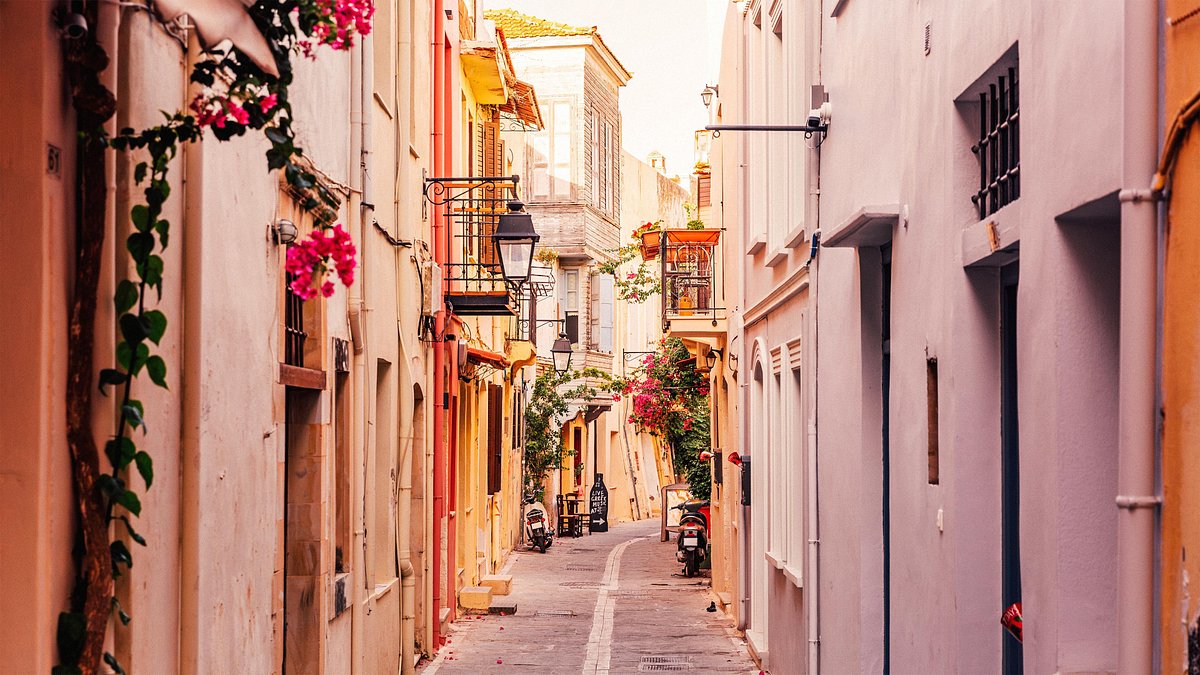
Greece Travel Restrictions
Traveler's COVID-19 vaccination status
Traveling from the United States to Greece
Open for vaccinated visitors
COVID-19 testing
Not required
Not required for vaccinated visitors
Restaurants
Not required in public spaces and public transportation.
Greece entry details and exceptions
Ready to travel, find flights to greece, find stays in greece, explore more countries on travel restrictions map, destinations you can travel to now, dominican republic, netherlands, philippines, puerto rico, switzerland, united arab emirates, united kingdom, know when to go.
Sign up for email alerts as countries begin to open - choose the destinations you're interested in so you're in the know.
Can I travel to Greece from the United States?
Most visitors from the United States, regardless of vaccination status, can enter Greece.
Can I travel to Greece if I am vaccinated?
Fully vaccinated visitors from the United States can enter Greece without restrictions.
Can I travel to Greece without being vaccinated?
Unvaccinated visitors from the United States can enter Greece without restrictions.
Do I need a COVID test to enter Greece?
Visitors from the United States are not required to present a negative COVID-19 PCR test or antigen result upon entering Greece.
Can I travel to Greece without quarantine?
Travelers from the United States are not required to quarantine.
Do I need to wear a mask in Greece?
Mask usage in Greece is not required in public spaces and public transportation.
Are the restaurants and bars open in Greece?
Restaurants in Greece are open. Bars in Greece are .
Greece Travel Restrictions
Traveller's COVID-19 vaccination status
Travelling from the United Kingdom to Greece
Open for vaccinated visitors
COVID-19 testing
Not required
Not required for vaccinated visitors
Restaurants
Not required in public spaces and public transportation.
Ready to travel?
Find flights to greece, find stays in greece, explore more countries on travel restrictions map, destinations you can travel to now, netherlands, new zealand, philippines, switzerland, united arab emirates, united states, know when to go.
Sign up for email alerts as countries begin to open - choose the destinations you're interested in so you're in the know.
Can I travel to Greece from the United Kingdom?
Most visitors from the United Kingdom, regardless of vaccination status, can enter Greece.
Can I travel to Greece if I am vaccinated?
Fully vaccinated visitors from the United Kingdom can enter Greece without restrictions.
Can I travel to Greece without being vaccinated?
Unvaccinated visitors from the United Kingdom can enter Greece without restrictions.
Do I need a COVID test to enter Greece?
Visitors from the United Kingdom are not required to present a negative COVID-19 PCR test or antigen result upon entering Greece.
Can I travel to Greece without quarantine?
Travellers from the United Kingdom are not required to quarantine.
Do I need to wear a mask in Greece?
Mask usage in Greece is not required in public spaces and public transportation.
Are the restaurants and bars open in Greece?
Restaurants in Greece are open. Bars in Greece are .
Security Alert May 17, 2024
Worldwide caution, update may 10, 2024, information for u.s. citizens in the middle east.
- Travel Advisories |
- Contact Us |
- MyTravelGov |
Find U.S. Embassies & Consulates
Travel.state.gov, congressional liaison, special issuance agency, u.s. passports, international travel, intercountry adoption, international parental child abduction, records and authentications, popular links, travel advisories, mytravelgov, stay connected, legal resources, legal information, info for u.s. law enforcement, replace or certify documents.
Share this page:
Greece Travel Advisory
Travel advisory july 26, 2023, greece - level 1: exercise normal precautions.
Reissued with obsolete COVID-19 page links removed.
Exercise normal precautions in Greece.
Read the country information page for additional information on travel to Greece.
If you decide to travel to Greece:
- Enroll in the Smart Traveler Enrollment Program ( STEP ) to receive security messages and make it easier to locate you in an emergency.
- Follow the Department of State on Facebook and Twitter .
- Review the Country Security Report for Greece.
- Visit the CDC page for the latest Travel Health Information related to your travel.
- Prepare a contingency plan for emergency situations. Review the Traveler’s Checklist .
Travel Advisory Levels
Assistance for u.s. citizens, search for travel advisories, external link.
You are about to leave travel.state.gov for an external website that is not maintained by the U.S. Department of State.
Links to external websites are provided as a convenience and should not be construed as an endorsement by the U.S. Department of State of the views or products contained therein. If you wish to remain on travel.state.gov, click the "cancel" message.
You are about to visit:
- Inspiration
- Destinations
- Places To Stay
- Style & Culture
- Food & Drink
- Wellness & Spas
- News & Advice
- Partnerships
- Traveller's Directory
- Travel Tips
- Competitions
All products are independently selected by our editors. If you buy something, we may earn an affiliate commission.
Can I go to Greece? The rules for travelling from the UK
By Sarah James

What do the current rules for travel to Greece mean for your trip? Here’s our round-up of what you need to know about visiting.
Can I travel to Greece from the UK?
Yes. Greece is not on any UK red list, which means that you can travel there from the country. Since 18 March 2022 there are no Covid travel restrictions in the UK, regardless of your vaccination status. This means testing, quarantining and even passenger locator forms are no longer necessary upon return from Greece.
What are the entry requirements for Greece?
Since Sunday 1 May, visitors to Greece no longer have to show proof of Covid vaccination, a negative Covid test or a certificate of recovery from the virus – regardless of their vaccination status or age. No travellers have to complete a passenger locator form either. And on 16 May, the European Union announced that masks are no longer required for passengers on flights to many EU countries – though it is best to check the policy on your particular airline. (We travelled to Greece on 15 May with Tui and returned with Jet2.com on 22 May and neither required we wear a face mask.)
Arrivals may also be required to take a test once they get to Greece – if the test is positive, they will be required to quarantine in a hotel for at least five days, after which they will be required to wear a specific type of face mask (FFP2, N95 or double masks, one of which must be surgical) in all public spaces for a further five days. If they still have a fever, they must continue to isolate. The cost of quarantine will be covered by the Greek state. If other passengers on your flight, bus, train or ferry later test positive, you may have to complete mandatory self-isolation.
Also since Sunday 1 May, domestic Covid passports, showing proof of vaccination or recovery, are no longer required to enter any indoor and outdoor venues. From Wednesday 1 June, face masks will no longer be mandatory apart from in certain places, such as hospitals and doctors' surgeries, until at least September, when the ruling will be reassessed in light of how the Covid situation is in Greece at that point. The UK government recommends always checking information direct from the Greek authorities , as it is liable to change quickly and without warning.

Where to stay:
There are more than 200 Greek islands to choose from. Big hitters such as Santorini and Mykonos have plenty of secluded hotels to consider, including understated, unhurried Perivolas , built into Santorini’s cliff face. Quieter isles include Paros , known for its remote beaches, and Syros , which covers just 32 square miles.
What to do:
Island-hopping is the obvious way to spend your days in Greece. If you’d rather base yourself in one place, consider Athens – the city is buzzing with young creatives, smart hotels and cool restaurants , and is close enough to the beach too.

Search Smartraveller

Latest update
Exercise normal safety precautions in Greece.
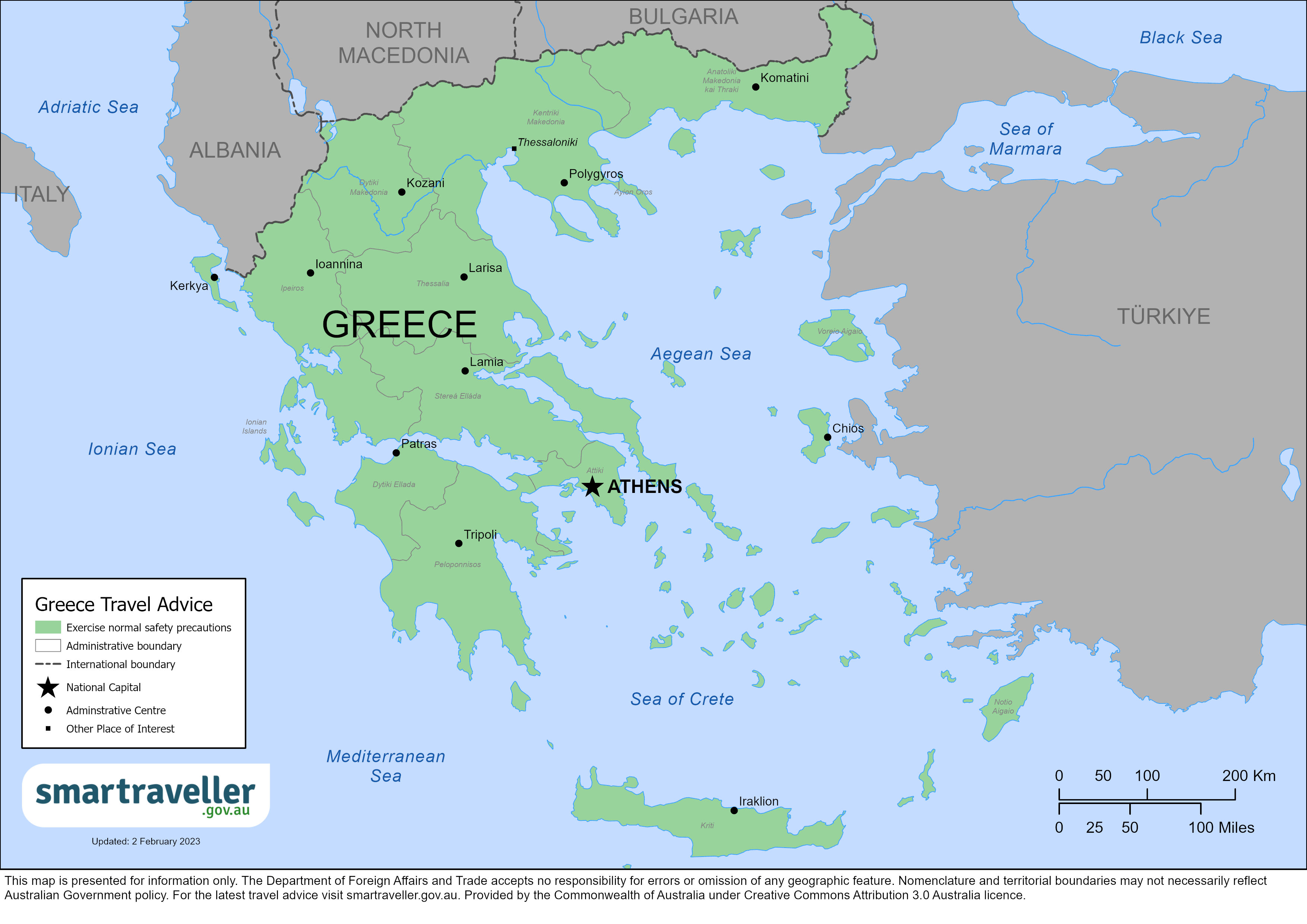
Greece (PDF 325.12 KB)
Europe (PDF 2.62 MB)
Local emergency contacts
Fire and rescue services, medical emergencies, advice levels.
Exercise normal safety precautions in Greece.
- Extreme temperatures are affecting many areas of Greece, and more wildfires are possible throughout the summer months. Contact your travel provider and monitor the media for the latest updates. Read our advice on what to do if you're overseas and there's a bushfire near you .
- Strikes, protests and demonstrations take place regularly and can turn violent. Rioting can break out with little warning. Violent clashes have occurred between supporters of rival football teams. Avoid affected areas, monitor media and follow the advice of local authorities.
- Petty crime and theft are serious issues in tourist areas and on buses and trains. Pickpocketing, bag snatching, and slashing luggage to steal belongings are common. Pay close attention to your belongings.
- Terrorist attacks have occurred at or near popular tourist areas in central Athens. Always be alert. Take official warnings seriously.
Full travel advice: Safety
- Heatwaves are becoming more frequent over the summer months. Drink plenty of water, wear light clothing, stay in air conditioning or shaded areas, and follow the advice of local authorities.
- Dust storms occur in Greece, particularly during Spring.
- Medications such as codeine are subject to special rules. Carry a prescription and a letter from your doctor.
- Measles is common in Greece. Make sure your vaccinations are up to date.
- The standard of medical care varies. Public hospitals are short on medical supplies and provide limited nursing care. Family or friends usually provide care.
Full travel advice: Health
- Always carry an ID, such as a photocopy of your passport.
- It's illegal to take photos of military sites and personnel. It's also illegal to smoke indoors.
- You may have to do military service if you're a male dual national. If you're of Greek descent and born outside of Greece, even if you don't think you're a Greek citizen, get advice from the nearest Greek Embassy or Consulate before you travel.
- Same-sex relationships are legal in Greece, though attitudes vary throughout the country. Avoid public displays of affection, especially in rural areas. Attitudes are generally more accepting on Greek islands such as Mykonos, Santorini and Ios.
Full travel advice: Local laws
- Greece is a part of the Schengen area . This allows you to enter without a visa in some cases. Get an entry stamp in your passport from border control when you first enter the Schengen area.
- Entry and exit conditions can change at short notice. Contact the nearest Greek embassy or Consulate for enquiries about your ability to enter Greece from your departure country.
Full travel advice: Travel
Local contacts
- The Consular Services Charter details what we can and can't do to help you overseas.
- For consular help, contact the Australian Embassy in Athens.
- To stay up to date with local information, follow the Embassy’s social media accounts.
Full travel advice: Local contacts
Full advice
Petty crime.
Petty crime is a serious issue in tourist areas, including Monastiraki and Syntagma Square in central Athens. It also occurs on public transport and in accommodation, including short-term rentals.
Theft, including pickpocketing, bag snatching and slashing luggage, is common on buses and trains to and from the Athens airport.
Organised groups of thieves often use distraction techniques, such as crowding and pushing at metro stop exits.
To reduce the risk of theft:
- stay in physical contact with your belongings, particularly on public transport and on buses and trains to and from the airport
- be alert at tourist spots in central Athens and on the islands
- don't leave bags on the back of chairs or the floor in cafés or restaurants
- carry your day bag with one strap across your body and carry small backpacks at the front of your body
- if driving on holiday, keep your valuables with you, always lock your vehicle, and park in a well-lit area or a secure car park.
Tourist scams
Tourist scams exist in Greece, including taxis, hotels, restaurants, and vehicle hire services. If you've been the victim of a scam, report your claims to the nearest Police station and be prepared to support your claim with evidence.
Under Greek law, all suppliers of goods and services must issue you a receipt.
Physical and sexual assault
Serious physical and sexual assaults occur in Athens and on islands, including Mykonos, Santorini, Zakynthos and Ios. There's also a risk of drink spiking with the intention of sexual assault.
Racially motivated and homophobic attacks have occurred.
To protect yourself:
- don't walk alone in isolated areas at night, especially in the Athens suburb of Omonia and at the railway and bus stations of Larissa and Peloponissos
- save the location of your accommodation on the maps app on your phone for easy access
- keep an eye on your drink, and don't accept drinks from strangers or leave drinks unattended.
- create a shared communication chat with your fellow travellers to stay in touch if separated.
If you're a victim of sexual assault in Greece, it's your decision whether to report it to the police. In Greece, health professionals must notify the police when they have a patient who alleges they've been assaulted. Hospital staff may refuse to provide a full medical examination without a document from the police confirming you've reported the crime.
There have been instances where an alleged abuser has laid defamation charges against their accuser and/or their family members at the same time. This can result in the accuser being arrested.
If the case goes to trial, the victim is generally expected to attend court in person to testify, regardless of whether they live in another country.
Before you travel, read our guidance on reducing the risk of sexual assault . We also have an advice page on what to do immediately after a sexual assault, reporting a sexual assault overseas, and available counselling.
More information:
- Partying safety

Cyber security
You may be at risk of cyber-based threats during overseas travel to any country. Digital identity theft is a growing concern. Your devices and personal data can be compromised, especially if you’re connecting to Wi-Fi, using or connecting to shared or public computers, or to Bluetooth.
Social media can also be risky in destinations where there are social or political tensions, or laws that may seem unreasonable by Australian standards. Travellers have been arrested for things they have said on social media. Don't comment on local or political events on your social media.
More information:
- Cyber security when travelling overseas
Terrorism occurs in Europe. Targets across Europe have included:
- public transport
- transport hubs
- public places popular with tourists
European security services have disrupted some planned attacks in recent years.
Radical groups have staged attacks, mainly in Athens. Attackers have previously used bombs or guns. People have been injured but rarely killed. Substantial damage to buildings and vehicles can occur.
Terrorist targets have included:
- government institutions
- former government ministers
- the offices of members of parliament
- foreign diplomatic missions
Terrorists haven't targeted tourists. But some attacks have happened near popular tourist areas in central Athens, such as Syntagma Square.
To protect yourself from terrorism:
- be alert to possible threats, especially in public places
- take care around areas terrorists tend to target
- monitor the media for new threats
- take official warnings seriously
- follow the advice of local authorities
Report suspicious activity or items to the police.
If there's an attack, leave the area as soon as it's safe. Avoid the affected area in case of secondary attacks.
Terrorism is a threat worldwide.
Civil unrest and political tension
Protests and riots.
Public protests, strikes, demonstrations and events that draw large groups of people occur regularly and often with little notice, mainly in central Athens around Syntagma Square, Omonia Square and Exarchia. They can also occur in major cities, including Thessaloniki around Aristotelous Square, Egnatia Street, the Arch of Galerius and the campus of Aristotle University. These protests can disrupt public transport and roads. Protesters and police could also clash. Sometimes petrol bombs and fireworks are thrown by protesters, and police deploy tear gas.
Civil unrest is more likely on days of national or commemorative significance, including:
- 1 May — Labour Day
- 17 November — the anniversary of the 1973 student riots
- 6 December — the anniversary of the 2008 riots
Violent clashes can occur between supporters of rival football teams. Molotov cocktails and stones have been thrown and people have been killed.
To protect yourself during periods of unrest:
- avoid public protests
- monitor local media for possible unrest or strikes
- keep a low profile
- plan to avoid areas known for unrest on days of national significance
- change your travel plans if disruptions arise
Road closures
Road closures are common in Athens. Officials don't always announce them in advance.
Contact your airline, travel agent or insurer for help with transport disruptions.
Monitor the media for news on strikes that may cause road closures.
- Demonstrations and civil unrest
Adventure activities
Transport and tour operators don't always follow safety and maintenance standards.
If you plan to do an adventure activity :
- check if your travel insurance policy covers it
- ask about and insist on minimum safety requirements
- always use available safety gear, such as life jackets or seatbelts
If proper safety equipment isn't available, use another provider.
Climate and natural disasters
Greece experiences natural disasters and severe weather .
Information on national disaster incidents and severe weather is posted by local authorities and @112Greece (in Greek) on social media. Alert messages (in Greek) may be sent by local authorities to mobile numbers advising of critical incidents. For updated information on natural disasters, see civilprotection.gov.gr .
Heavy rainfall can lead to flooding in some regions, with road closures and interruptions to power and other services. Seek shelter, monitor the media and follow the advice of local authorities.
Bush and forest fires occur during the summer months, from June to September. Fires can start close to cities and tourist locations with little warning and travel quickly. Fatalities have occurred.
Expect travel disruptions if you're due to travel to an area that might be affected by wildfires. Monitor the media and contact your travel provider for the latest updates. The air quality during these periods may deteriorate due to heavy smoke. Forest fires are highly dangerous and unpredictable.
- Floods and fires
- There's a bushfire
Earthquakes and volcanoes
Greece is in an active seismic zone and experiences earthquakes and volcanic activity .
Get updates from the Global Disaster Alert and Coordination System .
Natural disasters
If a natural disaster or severe weather happens:
- monitor local media and other sources
- keep informed about possible safety risks
- Travel insurance
Get comprehensive travel insurance before you leave.
Your policy needs to cover all overseas medical costs, including medical evacuation. The Australian Government won't pay for these costs.
If you can't afford travel insurance, you can't afford to travel. This applies to everyone, no matter how healthy and fit you are.
If you're not insured, you may have to pay many thousands of dollars up-front for medical care.
- what activities and care your policy covers
- that your insurance covers you for the whole time you'll be away.
Physical and mental health
Consider your physical and mental health before you travel, especially if you have an existing medical condition.
See your doctor or travel clinic to:
- have a basic health check-up
- ask if your travel plans may affect your health
- plan any vaccinations you need
Do this at least 8 weeks before you leave.
If you have immediate concerns for your welfare or the welfare of another Australian, call the 24-hour Consular Emergency Centre on +61 2 6261 3305 or contact your nearest Australian Embassy, High Commission or Consulate to discuss counselling hotlines and services available in your location.
- General health advice
- Healthy holiday tips (Healthdirect Australia)
Medications
Not all medication available over the counter or by prescription in Australia is available in other countries. Some may even be considered illegal or a controlled substance, even if prescribed by an Australian doctor.
If you plan to bring medication, check if it's legal in Greece. Take enough legal medicine for your trip in its original packaging. The name on the prescription should match the name on your passport.
Carry a copy of your prescription and a letter from your doctor stating:
- what the medicine is
- your required dosage
- that it's for personal use
Codeine and other prescription opiates can only be issued with a prescription from an accredited Greek medical professional.
For more information, contact the Greek National Organization of Medicines:
- By telephone: 0030 213 2040 395 / 285 / 225 / 000
- By email: [email protected] / [email protected]
- Australian Embassy in Athens
Health risks
Heatwaves are becoming more frequent over the summer months. They can cause heat exhaustion and heat stroke. Drink water, wear a hat and light clothing and stay in air conditioned buildings or shaded areas.
Many major tourist sites have little shade. At peak tourist periods, queues at major attractions can involve waiting over an hour in the sun. Plan your visit to these sites, keep an eye on the weather forecast, and follow the advice of local authorities.
Dust storms
Storms of dust from the Sahara Desert are increasing in frequency across Greece, particularly during Spring, worsening the air quality and reducing sunlight and visibility. If you have respiratory conditions, you should limit outdoor activities and consider wearing masks outside until the skies clear.
Measles is common in Greece. The country is experiencing an increase in measles cases.
Make sure your vaccinations are up-to-date before you travel.
- Department of Health and Aged Care Measles Outbreaks 2019
- Department of Health and Aged Care Measles Immunisation Service
Insect-borne diseases
Cases of West Nile virus (WNV) have been reported in Greece. There's no vaccine to prevent it.
To protect yourself from disease:
- make sure your accommodation is insect-proof
- use insect repellent
- wear long, loose, light-coloured clothing
- Infectious diseases
- Hellenic Center for Disease Control and Prevention
Foodborne diseases
Outbreaks of foodborne diseases, including brucellosis , sometimes happen.
To protect yourself from illness, avoid:
- uncooked and under-cooked food
- unpasteurised dairy products
See a doctor immediately if you suspect food poisoning or have a fever or diarrhoea.
Medical care
Medical facilities.
Services provided by hospitals and medical centres aren't free, and payment is required before you leave the facility. Sometimes, the medical provider may ask you for payment before you receive treatment.
The standard of medical facilities and care vary in quality. Public hospitals in Greece are below the standard in Australia. Considerable delays may be encountered with non-urgent surgeries and other medical treatments at public hospitals.
Public hospitals can have shortages of medical supplies, including essential medication. They also have limited nursing care. You may be asked to pay a minor fee for medical treatment at a hospital or medical centre. Friends and relatives are usually required to give around-the-clock care.
If you become seriously ill or injured, you may need evacuation. This is more likely if you're in a remote area or on a Greek island. You might be moved to Athens or another place with better facilities. Medical evacuation can be very expensive.
Public ambulances can be slow to respond to emergencies and vary in quality. Private hospitals operate their own ambulances and provide better quality service.
Private hospital costs are high.
You're subject to local laws and penalties, including those that appear harsh by Australian standards. Research local laws before travelling, especially for an extended stay.
If you're arrested or jailed, the Australian Government will do what it can to help you under our Consular Services Charter . But we can't get you out of trouble or out of jail.
Breaking the law can lead to severe penalties, large fines and jail.
Penalties for drug possession, use or trafficking, even small amounts, include heavy fines and prison sentences.
- Carrying or using drugs
Commercial surrogacy is illegal in Greece.
- Going overseas for international surrogacy
In Greece, it's illegal to:
- not carry a photo ID, such as a clear photocopy of your passport
- carry weapons of any type (including pocketknives and pepper spray)
- smoke in indoor public places. The penalty is a fine of up to 500 euros.
- engage in sexual conduct with a person aged under 18
- breach customs rules about the export of Greek antiquities
It's also illegal to take photos of:
- military installations
- military personnel
- places with signs banning photography
Recreational and commercial flying of drones is regulated. Drones must be registered for use across the European Union.
Non-compliance may lead to fines and drone confiscation.
Useful links
- Information for visitors concerning drones - Hellenic Civil Aviation Authority (HCAA)
- Civil drones - European Union Aviation Safety Agency
Australian laws
Some Australian criminal laws still apply when you're overseas. If you break these laws, you may face prosecution in Australia.
Staying within the law and respecting customs
Dual citizenship
Dual citizenship is legally recognised in Greece.
Greek males aged 19 and above have military service obligations. You may have to do military service if you're a male Australian-Greek dual national. This can apply if you are of Greek descent and were born outside of Greece, even if you don't think you have Greek citizenship.
There are penalties if you don't comply, and you may be prevented from leaving Greece.
Get advice from the nearest Greek embassy or consulate before you travel if you:
- have Greek citizenship
- may be eligible for Greek citizenship
Local customs
Dress codes are relaxed in tourist areas and resorts. Dress modestly in places such as churches and religious buildings.
Take care not to offend. If in doubt, seek local advice.
Avoid public displays of affection, especially in rural areas.
Same-sex sexual activity is legal but isn't widely accepted.
Advice for LGBTQIA+ people
Visas and border measures
Every country or territory decides who can enter or leave through its borders. For specific information about the evidence you'll need to enter a foreign destination, check with the nearest embassy, consulate or immigration department of the destination you're entering.
Greece is a part of the Schengen area . This allows you to enter without a visa in some cases. Get an entry stamp in your passport from border control when you first enter the Schengen area.
Entry and exit conditions can change at short notice, and you'll need a visa in some situations. Contact the nearest Greek Embassy or Consulate for details about visas, currency, customs and quarantine rules.
- Visit Greece
- Embassy of Greece
Other formalities
Recognition of nationality.
If you were born in Greece, you might have problems entering if the place of birth stated on your Australian passport is no longer officially recognised by Greece.
Officials may deny entry, especially if you're entering Greece from the Republic of North Macedonia.
We can't intervene on your behalf if Greek officials refuse you entry to Greece.
Some countries won't let you enter unless your passport is valid for 6 months after you plan to leave that country. This can apply even if you're just transiting or stopping over.
Some foreign governments and airlines apply the rule inconsistently. Travellers can receive conflicting advice from different sources.
You can end up stranded if your passport is not valid for more than 6 months.
The Australian Government does not set these rules. Check your passport's expiry date before you travel. If you're not sure it'll be valid for long enough, consider getting a new passport .
Always carry your passport when crossing borders, even within the Schengen area .
Lost or stolen passport
Your passport is a valuable document. It's attractive to people who may try to use your identity to commit crimes.
Some people may try to trick you into giving them your passport. Always keep it in a safe place.
If your passport is lost or stolen, tell the Australian Government as soon as possible:
- In Australia, contact the Australian Passport Information Service .
- If you're overseas, contact the nearest Australian embassy or consulate .
Passport with ‘X’ gender identifier
Although Australian passports comply with international standards for sex and gender, we can’t guarantee that a passport showing 'X' in the sex field will be accepted for entry or transit by another country. Contact the nearest embassy, high commission or consulate of your destination before you arrive at the border to confirm if authorities will accept passports with 'X' gender markers.
More information:
- LGBTQIA+ travellers
The official currency of Greece is the Euro.
You must declare amounts over 10,000 euros or equivalent if you're travelling between Greece and any non-European Union (EU) country. This covers all forms of currency, not only cash.
You don't need to declare it if you're travelling to or from another EU country.
You'll be fined if you don't declare it or declare the wrong amount when entering or leaving Greece.
Greece has daily ATM withdrawal limits. However, they don't apply to most major foreign debit and credit cards.
If you have Greek citizenship, you can only take up to 10,000 euros when leaving Greece.
Local travel
Extension of stays.
Extension of stays in Greece beyond the allowed 90 days isn't automatic. Requests for extension with the relevant local authority should be lodged at least 4 weeks before your visa-free period expires. Present your request to the office of the Greek police on aliens issues.
Driving permit
Australian driver's licences are officially recognised as valid for use in Greece. If you plan on driving in Greece, you may not need an International Driving Permit. Contact the Greek Embassy or Consulate for more information on your licence type.
Your licence must be valid for the type of vehicle you'll drive, including quad bikes, motorbikes, mopeds, motor scooters and other similar vehicles.
You could face a large fine if you don't have the correct licence. Your insurance won't cover you if you have an accident.
Road travel
Driving is hazardous due to aggressive driving and poor-quality roads and vehicles.
Traffic police sometimes direct traffic at major intersections. If the traffic lights conflict with police directions, follow the directions of the traffic police.
During peak season, severe traffic congestion occurs in the main cities and on the islands.
Drivers and motorcyclists often ignore traffic signals. They rarely give way to pedestrians.
Take care when crossing the road, including at pedestrian crossings, controlled intersections, and footpaths. Drivers often don't stop at pedestrian crossings.
Footpaths in Greece are very narrow and often blocked.
Check your insurance covers car hire and the use of quad bikes, motorbikes or jet skis. Get advice on any gaps. Your insurance may have conditions such as holding the correct licence for vehicles. Make sure you're covered. Check what additional fees may apply for any damage to hire vehicles.
Driving while intoxicated or under the influence of any illegal substance is illegal. Insurers won't cover accidents when drivers are under the influence of alcohol.
Driving offences may also attract heavy penalties.
- Driving or riding
- Driving in Greece - European Commission
Quad bikes and motorcycles
Quad bike and motorcycle accidents cause serious injuries and deaths every summer on the Greek islands. Operating or riding quad bikes and motorcycles while intoxicated is illegal.
Always wear a helmet. It's illegal not to wear one. It may also invalidate your travel insurance if you have an accident.
If you experience any issues with the operation of the bike, it's recommended that you return the bike as soon as possible to the rental company.
Only use licensed taxis. Always ensure the driver uses the meter. Be careful when using credit cards to pay fares. Ask for and check your receipt.
Ferries and large catamarans carry the bulk of visitors to the Greek islands. Some services do not provide suitable access for people with disabilities.
During the tourist season, from May to October, be prepared for high temperatures and large crowds at popular seaports.
Usually, there are only one or two brief announcements on ferries before arrival or departure.
In most cases, you'll need to carry your luggage up and down stairs. Help with luggage is usually unavailable unless you've booked a private cabin in advance.
On some Greek islands, such as Santorini, smaller boats or tenders transport cruise ship passengers to and from shore. Passengers using tenders may have difficulty getting up and down stairs.
Arrange for a coach or taxi to collect you in advance, or you may find it difficult to get transport.
Make sure your insurance covers the following:
- any existing health condition
- your planned activities
- travel on ferry and cruise ships
Australian-flagged sailboats or yachts sailing in the Mediterranean may be subject to Greek and EU taxes and duties. Seek advice from the Hellenic Coast Guard or the nearest embassy or consulate of Greece before you travel. If you've been involved in a maritime accident, the Greek Coast Guard may request under its regulations to inspect your vessel to confirm it is seaworthy.
- Going on a cruise
- Travelling by boat
To find out about flight delays at Athens International Airport, check their website or phone (+30 210) 353 0000.
DFAT doesn't provide information on the safety of individual commercial airlines or flight paths.
Check Greece's air safety profile with the Aviation Safety Network.
Emergencies
Depending on what you need, contact your:
- family and friends
- travel agent
- insurance provider
For non-urgent criminal issues, contact local police at the nearest police station.
Always get a police report when you report a crime.
Your insurer should have a 24-hour emergency number.
Tourist police
Are available 24/7 and can be contacted on 171.
The Tourist Police help with non-serious crimes and can provide police reports and certificates for theft of personal items and lost travel documents.
There are tourist police offices across Greece, including on major islands.
The main office is at 4 Dragatsaniou Street, Klafthmonos Square, in Central Athens and is open all year. Call (+30 210) 322 2230 or (+30 210) 322 2232.
Consular contacts
Read the Consular Services Charter for what the Australian Government can and can't do to help you overseas.
For consular help, contact:
Australian Embassy, Athens
5 Hatziyianni Mexi Street
Athens 115 28, Greece
Phone: (+30 210) 870 4000
Website: greece.embassy.gov.au
Facebook: Australia in Greece
X: @AusAmbAthens
Check the Embassy website for details about opening hours and any temporary closures.
24-hour Consular Emergency Centre
In a consular emergency, if you can't contact an embassy, call the 24-hour Consular Emergency Centre on:
- +61 2 6261 3305 from overseas
- 1300 555 135 in Australia

Travelling to Greece?
Sign up to get the latest travel advice updates..
Be the first to know official government advice when travelling.
Cookies on GOV.UK
We use some essential cookies to make this website work.
We’d like to set additional cookies to understand how you use GOV.UK, remember your settings and improve government services.
We also use cookies set by other sites to help us deliver content from their services.
You have accepted additional cookies. You can change your cookie settings at any time.
You have rejected additional cookies. You can change your cookie settings at any time.
Register to vote Register by 18 June to vote in the General Election on 4 July.
- Passports, travel and living abroad
- Travel abroad
- Foreign travel advice
Warnings and insurance
The Foreign, Commonwealth & Development Office ( FCDO ) provides advice about risks of travel to help British nationals make informed decisions. Find out more about FCDO travel advice .
Before you travel
No travel can be guaranteed safe. Read all the advice in this guide as well as support for British nationals abroad which includes:
- advice on preparing for travel abroad and reducing risks
- information for women, LGBT+ and disabled travellers
Follow and contact FCDO travel on X (formerly known as Twitter), Facebook and Instagram . You can also sign up to get email notifications when this advice is updated.
Travel insurance
If you choose to travel, research your destinations and get appropriate travel insurance . Insurance should cover your itinerary, planned activities and expenses in an emergency.
Related content
Is this page useful.
- Yes this page is useful
- No this page is not useful
Help us improve GOV.UK
Don’t include personal or financial information like your National Insurance number or credit card details.
To help us improve GOV.UK, we’d like to know more about your visit today. Please fill in this survey (opens in a new tab) .
Insider tips before your trip to Crete
Jul 10, 2022 • 5 min read
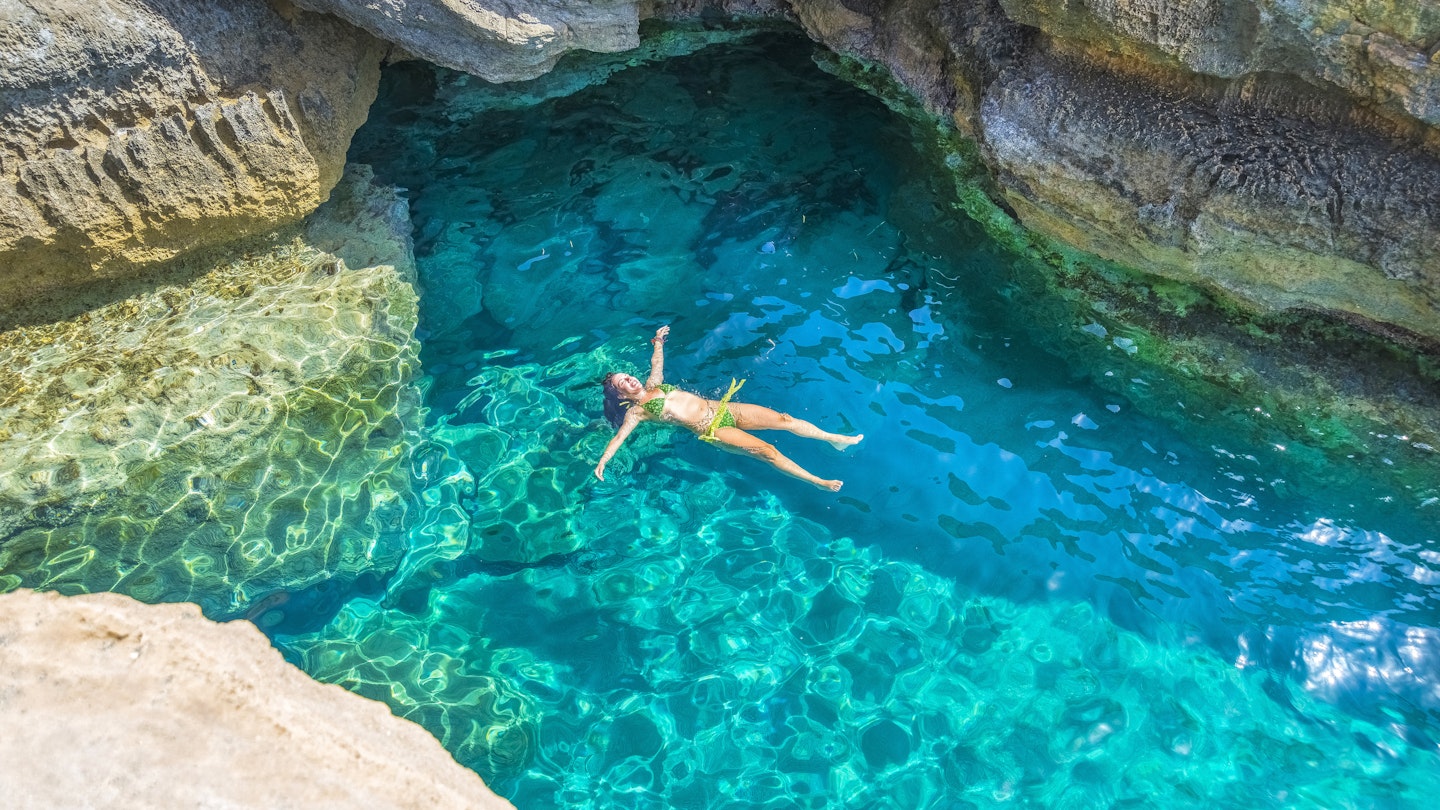
Visiting Crete is a pleasure – and even easier by familiarizing yourself with a few simple tips © alexandros petrakis / Shutterstock
Crete is easy. There’s little you need to do to prepare for your trip to this glorious Greek island beyond making a few advance bookings. Packing is simple – and if you forget something, you can buy it there.
The island is safe. The local economy counts on tourists, and the Cretans – like most Greeks – are friendly and welcoming. In any business where tourists turn up (which even includes tiny family-run eateries high in the hills), someone will speak English. A little common sense and politeness will go a long way as you navigate the etiquette of the place.
Here’s all you need to know before you take your trip to Crete. (Lucky you.)
Reserve your rooms and rental cars (well) in advance
As travelers continue to make up for missed trips during the pandemic, Crete is a favorite destination. From April to October, the best places to stay at all price levels book up early. Don’t wait, expecting prices to fall. They won’t.
This is even more true for rental cars, thanks to the global car shortage. If you’re driving the entire time you’re on the island, shop around and reserve the best deal you can find. One exception: if you’ll just be hiring a car for the occasional day trip, you can wait until you’re on the island and then arrange for a day rental with a local outfit. (Keep in mind that this may be a friend of the hotel owner with a fleet of three Fiats.)

Know your season – and layer up
Images of sun-drenched beaches and balmy nights in cafes underpin Cretan tourism cliches. But outside of summer, it’s not always warm. Winter can be blustery, chilly and wet. Nights outside of July and August can be brisk. Bring layers.
Bring some cash
Visa and Mastercard are widely accepted for purchases large and small, and ATMs are common on Crete. But you might encounter offline machines or cash-only vendors, so we recommend carrying about €200 in cash in various smaller-euro denominations. Don’t be that person who hands the elderly ex-fisherman running the beach ferry a €50 note for a €5 fare.
Fill your phone with maps before you take the wheel
Many mapping apps allow you to download data in advance that you can then use for navigation when your phone is offline. This can be a lifeline when you’re at the junction of two unmarked roads deep in the mountains and you don’t know which way to turn.

Cover up in churches
Letting it (almost) all hang out is fine on many beaches (there are a few completely nude ones on the island) but when you’re stopping into Crete’s many historic, incense-filled churches, show some respect. Cover your shoulders, have shorts or a skirt that goes below the knees, and don’t enter barefoot.
Stay coolly stylish at night
Balmy nights call for airy, floaty duds – yet don’t expect to get into that cool cafe, top restaurant or heaving club with a singlet and short shorts. Longer shorts and dresses are good almost anywhere at night; a crisp designer T-shirt or something with a collar will work for men.
Cretans rarely go naked or topless on the beach
Island residents fully expect the clothes to fall away from their beach-loving visitors. Yet you should still exercise some discretion. Near town centers and along beach promenades, polite exposure maintains a shred of modesty. Elsewhere, women often go topless and designated nude areas abound. When in doubt, check out the prevailing fashion around you (or lack thereof).
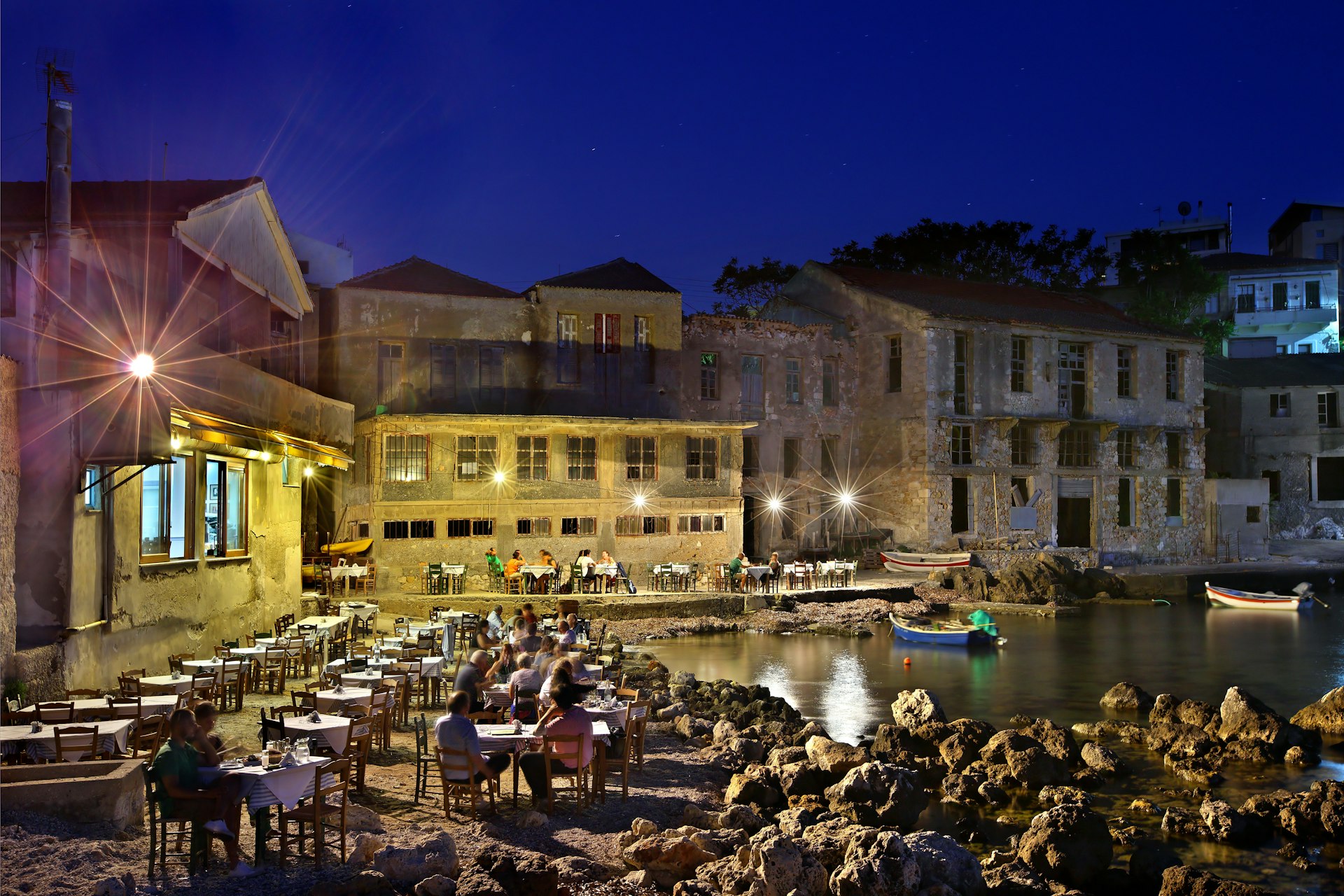
Expect long and languid dinners
Crete has some of the best food in Mediterranean Europe . Meals are an event – and can extend over two or more very enjoyable hours. Friends share dishes large and small, which are served to the entire table, family style. On a busy summer evening, restaurants can get slammed and courses may meander out of the kitchen only after long gaps. Trying to hurry things along is bad form and the antithesis of a lovely, relaxed night out.
In contrast, lunch can be enjoyed fairly quickly at a cafe or savored for much longer, especially at a seaside taverna, where a shady table and fresh seafood meal is the ideal antidote to the scorchingly hot midday sun.
Be sure to tip – but don’t overtip
As an island with a huge tourism industry, Crete has more of a tipping culture than more un-touristed parts of Greece. In restaurants and cafes, 5% is a good median amount, with 10% very generous. Locals will round up to an even number in a restaurant (eg leave €35 for a tab of €33) or leave small change in a cafe.
Leaving some euros for your room cleaner is always appreciated. If someone helps you with your bags, €1 to €3 per bag is appropriate – unless it’s a taxi driver, in which case the bag handling fee is added to the fare. You only need to tip a taxi driver a couple of euros at most.
Pay the asked price
Outside of open-air markets, bargaining over prices is not the norm in Crete. Expect to pay the marked price in shops and galleries.
Feel free to drink the water
Tap water in Crete is safe to drink. Remember to refill your water bottles whenever you can, as it gets very hot in summer. You’ll need plenty of hydration for the beach, hiking trails, bus and car rides, and more.
Don’t stress about crime
Crete is a safe place to travel and you shouldn’t lose sleep over the risk of crime. As anywhere, though, common sense should always prevail: lock your doors, don’t leave valuables in the rental car and never leave your phone or other treasures unattended on the beach or at the cafe.
Frustrate the mosquitos
Mosquitos buzz about ceaselessly at dusk. If you like anti-bug sprays or balms, bring them with you – repellants can be surprisingly tough to find on Crete. Mosquito coils are widely available, as well as electric gizmos that plug into the wall of hotel rooms. But the efficacy of these methods is variable at best.
Explore related stories
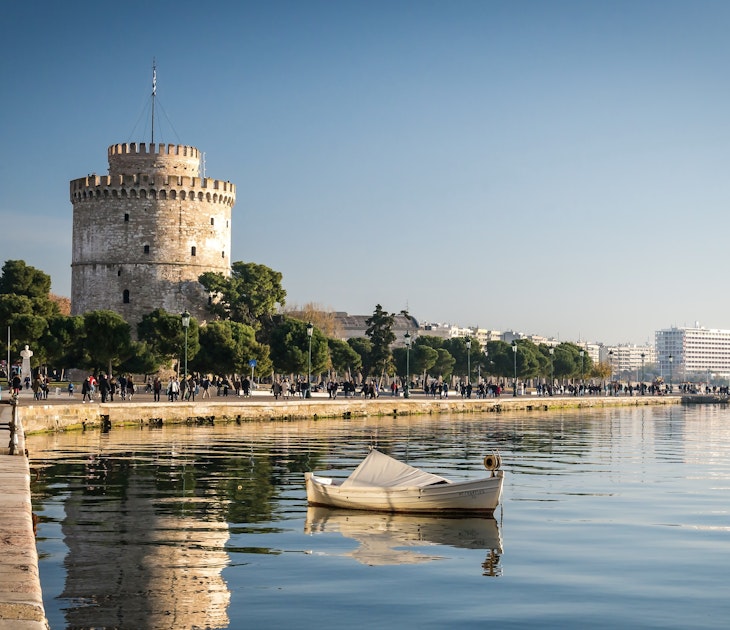
Archaeology
Feb 1, 2024 • 7 min read
The domain of ancient conquerer Alexander the Great, Greece’s second city offers charming neighborhoods, fascinating history, food and more.

May 31, 2024 • 4 min read

May 30, 2024 • 10 min read

May 13, 2024 • 13 min read

Mar 22, 2024 • 7 min read

Mar 15, 2024 • 10 min read

Mar 6, 2024 • 8 min read

Mar 4, 2024 • 6 min read

Feb 19, 2024 • 7 min read
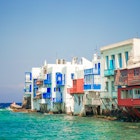
Feb 15, 2024 • 4 min read

- What is a visa?
- Electronic Visa (eVisa)
- Visa on Arrival
- Appointment Required Visa
- Invitation Letter
- Arrival Card
- Passport Renewal
- Project Kosmos: Meet the man with the world's most challenging travel schedule
- Australia Visa and ETA requirements for US citizens explained
- Brazil eVisa for US citizens
- India Tourist Visa for UK citizens
- Possible B1/B2 Visa questions during the interview
Select Your Language
- Nederlandse
- 中文 (Zhōngwén), 汉语, 漢語
Select Your Currency
- AED United Arab Emirates Dirham
- AFN Afghan Afghani
- ALL Albanian Lek
- AMD Armenian Dram
- ANG Netherlands Antillean Guilder
- AOA Angolan Kwanza
- ARS Argentine Peso
- AUD Australian Dollar
- AWG Aruban Florin
- AZN Azerbaijani Manat
- BAM Bosnia-Herzegovina Convertible Mark
- BBD Barbadian Dollar
- BDT Bangladeshi Taka
- BGN Bulgarian Lev
- BIF Burundian Franc
- BMD Bermudan Dollar
- BND Brunei Dollar
- BOB Bolivian Boliviano
- BRL Brazilian Real
- BSD Bahamian Dollar
- BWP Botswanan Pula
- BZD Belize Dollar
- CAD Canadian Dollar
- CDF Congolese Franc
- CHF Swiss Franc
- CLP Chilean Peso
- CNY Chinese Yuan
- COP Colombian Peso
- CRC Costa Rican Colón
- CVE Cape Verdean Escudo
- CZK Czech Republic Koruna
- DJF Djiboutian Franc
- DKK Danish Krone
- DOP Dominican Peso
- DZD Algerian Dinar
- EGP Egyptian Pound
- ETB Ethiopian Birr
- FJD Fijian Dollar
- FKP Falkland Islands Pound
- GBP British Pound Sterling
- GEL Georgian Lari
- GIP Gibraltar Pound
- GMD Gambian Dalasi
- GNF Guinean Franc
- GTQ Guatemalan Quetzal
- GYD Guyanaese Dollar
- HKD Hong Kong Dollar
- HNL Honduran Lempira
- HTG Haitian Gourde
- HUF Hungarian Forint
- IDR Indonesian Rupiah
- ILS Israeli New Sheqel
- INR Indian Rupee
- ISK Icelandic Króna
- JMD Jamaican Dollar
- JPY Japanese Yen
- KES Kenyan Shilling
- KGS Kyrgystani Som
- KHR Cambodian Riel
- KMF Comorian Franc
- KRW South Korean Won
- KYD Cayman Islands Dollar
- KZT Kazakhstani Tenge
- LAK Laotian Kip
- LBP Lebanese Pound
- LKR Sri Lankan Rupee
- LRD Liberian Dollar
- LSL Lesotho Loti
- MAD Moroccan Dirham
- MDL Moldovan Leu
- MGA Malagasy Ariary
- MKD Macedonian Denar
- MNT Mongolian Tugrik
- MOP Macanese Pataca
- MUR Mauritian Rupee
- MVR Maldivian Rufiyaa
- MWK Malawian Kwacha
- MXN Mexican Peso
- MYR Malaysian Ringgit
- MZN Mozambican Metical
- NAD Namibian Dollar
- NGN Nigerian Naira
- NIO Nicaraguan Córdoba
- NOK Norwegian Krone
- NPR Nepalese Rupee
- NZD New Zealand Dollar
- OMR Omani Rial
- PAB Panamanian Balboa
- PEN Peruvian Nuevo Sol
- PGK Papua New Guinean Kina
- PHP Philippine Peso
- PKR Pakistani Rupee
- PLN Polish Zloty
- PYG Paraguayan Guarani
- QAR Qatari Rial
- RON Romanian Leu
- RSD Serbian Dinar
- RUB Russian Ruble
- RWF Rwandan Franc
- SAR Saudi Riyal
- SBD Solomon Islands Dollar
- SCR Seychellois Rupee
- SEK Swedish Krona
- SGD Singapore Dollar
- SHP Saint Helena Pound
- SLL Sierra Leonean Leone
- SOS Somali Shilling
- SRD Surinamese Dollar
- SVC Salvadoran Colón
- SZL Swazi Lilangeni
- THB Thai Baht
- TJS Tajikistani Somoni
- TOP Tongan Pa anga
- TRY Turkish Lira
- TTD Trinidad and Tobago Dollar
- TWD New Taiwan Dollar
- TZS Tanzanian Shilling
- UAH Ukrainian Hryvnia
- UGX Ugandan Shilling
- USD United States Dollar
- UYU Uruguayan Peso
- UZS Uzbekistan Som
- VND Vietnamese Dong
- VUV Vanuatu Vatu
- WST Samoan Tala
- XAF CFA Franc BEAC
- XCD East Caribbean Dollar
- XOF CFA Franc BCEAO
- XPF CFP Franc
- YER Yemeni Rial
- ZAR South African Rand
- ZMW Zambian Kwacha
Apply for and track your visa with our new app!
Download Now
Greece Vaccination Requirements: Do I Need a Vaccine to Travel to Greece?
Note: Since March 15th, 2022, the Greece Passenger Locator Form is no longer necessary to enter the country.
To visit Greece you might need to fulfill some health requirements based on which country you are coming from. Wherever in the world you are, one document is mandatory - The Greece Passenger locator Form. You can click the link below to apply for it with iVisa.com And, if you don’t know which vaccines, if any, you will need to get before your arrival to the country, keep reading below, we will explain the Greece Vaccination Requirements: Do I need a vaccine to travel to Greece?
Get Started With iVisa.com! .
With us you will find an alternative to obtaining your documents efficiently and more effortlessly. Besides, you will also find information about Greece and what you need for your trip.
How can I get the Greece Passenger Locator Form with iVisa.com?
To enter Greece, every traveler needs to fill out the Greece Passenger Locator Form. Follow the steps below to get yours:
- Complete the application form and provide your information as indicated. Don’t forget to choose how fast you want to get your document based on your needs.
- Continue with the payment . Feel free to use any of your credit/debit cards or your Paypal account if you prefer.
- Finally, upload the required documents and submit them.
If you want to get your documents right away, click here .
Learn more about the Greece Vaccination Requirements: Do I need a vaccine to travel to Greece? In the lines below.

Frequently Asked Questions
Do i need a vaccine to travel to greece.
No, you don't. COVID vaccination certificates are not mandatory to enter Greece.
Travelers coming from EU & Schengen Area countries, Albania, Andorra, Armenia, Benin, Cabo Verde, El Salvador, Faroe Islands, Georgia, Israel, Iceland, Jordan, Lebanon, Liechtenstein, Moldova, Monaco, Montenegro, Morocco, New Zealand, N. Macedonia, Norway, Panama, San Marino, Serbia, Singapore, Switzerland, Taiwan, Thailand, Tunisia, Togo, Turkey, Ukraine, United Arab Emirates, United Kingdom, Uruguay, The Vatican with an EU Digital Covid Certificate will be exempted from testing requirements. Fully vaccinated travelers coming from Australia, Canada, and the USA will be exempted from testing requirements as well.
Acceptable vaccines are Pfizer BioNtech, Moderna, Astra Zeneca/Oxford, Novavax, Johnson + Johnson/Janssen, Sinovac Biotech, Sputnik, Cansino Biologics, Sinopharm among others.
You are considered vaccinated if all doses of a vaccine against SARS-Cov-2 have been administered for at least two weeks before traveling.
Get started here .
Do I need to take a COVID-19 test in order to enter the country?
COVID test prior to arrival: PCR within 72 hours or antigen within 24 hours
- Travelers coming from China are no longer required to present a pre-departure test.
COVID test exemptions:
Children under 13
Travelers coming from Australia, Canada, and the USA with proof of vaccination/recovery
Travelers coming from EU & Schengen Area countries, Albania, Andorra, Armenia, Benin, Cabo Verde, El Salvador, Faroe Islands, Georgia, Israel, Iceland, Jordan, Lebanon, Liechtenstein, Moldova, Monaco, Montenegro, Morocco, New Zealand, N. Macedonia, Norway, Panama, San Marino, Serbia, Singapore, Switzerland, Taiwan, Thailand, Tunisia, Togo, Turkey, Ukraine, United Arab Emirates, United Kingdom, Uruguay, The Vatican with an EU Digital Covid Certificate .
Children 6 and under are exempted from testing requirements.
Will I need to quarantine once I arrive in Greece?
Quarantine requirements: There are no quarantine requirements in Greece
Can iVisa.com's team help me with the entry requirements to visit Greece?
There are several entry requirements to enter Greece. However, vaccinations are not included among these. On the other hand, every traveler will need to complete the Greece Passenger Locator form before arriving in the country. You can apply for this document with iVisa.com and use our streamlined application process to get your form quickly and securely. Our team will review your application to make sure there are no errors. Start the process now .
Be aware the Passenger Locator Form does not replace a visa, so if your nationality requires one to enter Greece you’ll have to obtain that as well. If you need that, we recommend reaching out to your nearest embassy.
What information do I need to provide for the Greece Passenger Locator Form?
Follow the next list of items you should bear in mind when applying:
- The scanned passport that you will have to attach.
- The credit/debit card that you will use for the payment method.
- Your email address because it is where you will receive the Greece Passenger Locator Form when it is ready.
Apply right now .
What are the prices for the Greece Passenger Locator Form?
We have prepared the following options to get your Greece Passenger Locator Form:
- Standard Processing Time: - .
- Rush Processing Time: - .
- Super Rush Processing Time: - .
How can I get in touch with iVisa.com if I have more questions?
Feel free to reach out to our support agents whenever you need it, and they will be ready to clarify all you need to know about the Greece Vaccination Requirements: Do I need a vaccine to travel to Greece? Chat with them right now .
iVisa.com Recommends
Visiting Greece means that you will have a backstage pass to a country that is full of different options to explore. To start with, you will have the opportunity to visit Old Greece’s ruins where most of the arts, history, and ancient mythology can be seen together in one single place. There is not only one single place to visit, but many. However, iVisa.com will recommend a few places to consider first before going there.
Climb Mount Olympus: Most people worldwide have heard about it before in the different legends from Greek mythology textbooks. According to the story, it was where Zeus used to rule, sitting on his throne. The best part is that you can climb it and recreate those stories that you will find in textbooks about it.
Santorini (also well-known as Thira) is one of the most famous islands because of its traditional and astounding white and blue houses located in its capital Fira. If you go there, you will have the chance to discover them and take a tour around the place while taking the best selfies to show off with your family and friends.
You will need to present the Greece Passenger Locator Form when you arrive. To get it in advance, and avoid tedious queues during your departure, we recommend using iVisa.com . Apply right now .
Related Articles

Greece Schengen Visa for citizens of Indonesia

Greece Schengen Visa for citizens of Turkey

Greece Schengen Visa for citizens from Russia
- Crete Tourism
- Crete Hotels
- Bed and Breakfast Crete
- Crete Holiday Rentals
- Flights to Crete
- Crete Restaurants
- Crete Attractions
- Crete Travel Forum
- Crete Photos
- All Crete Hotels
- Crete Hotel Deals
- Last Minute Hotels in Crete
- Things to Do
- Restaurants
- Holiday Rentals
- Travel Stories
- Add a Place
- Travel Forum
- Travellers' Choice
- Help Centre
Crete with unvaccinated children - Crete Forum
- Europe
- Greece
- Crete
Crete with unvaccinated children
- United Kingdom Forums
- United States Forums
- Europe Forums
- Canada Forums
- Asia Forums
- Central America Forums
- Africa Forums
- Caribbean Forums
- Mexico Forums
- South Pacific Forums
- South America Forums
- Middle East Forums
- Honeymoons and Romance
- Business Travel
- Train Travel
- Traveling With Disabilities
- Tripadvisor Support
- Solo Travel
- Bargain Travel
- Timeshares / Holiday Rentals
- Greece forums
- Crete forum

When are you going? Although nothing is confirmed yet, there's a good chance the Covid restrictions will be lifted after 1st May.
https://www.keeptalkinggreece.com/2022/04/12/covid-pass-greece-may-day-health-minister-mask/?fbclid=IwAR2hI8qetFE4uaU2hWtH61MGF8pPSRaGSB7rg702vX52j39izSKuoHtILBM#.YlWQOUGWIUA.facebook

Thank you and fingers crossed. We don't go till the end of July
Unvaccinated children can do regular LFT testing at a pharmacy every couple of days then fill in a self test form which is accepted for entry to restaurants museums etc in place of a vaccination pass.
That option is not available to unvaccinated adults.

Don't know if I've missed it but I can't see anything in the above link specifically relating to children and the self testing, has anyone seen anything, sure it will be clarified when the official protocol comes out but just curious.
https://www.gov.uk/foreign-travel-advice/greece/coronavirus#unvaccinated-in-greece
Thanks, we don't go for another few weeks, I already have the self tests and have printed the forms so let's hope we won't need them.
🤞. Let me know how you get on. We don't go till July.
- Nudity 22:01
- Bus routes around Chania 21:49
- Best Gyros in Stalis? 21:33
- Boat trip with children 16:49
- Rethymnon city bikes or e-scooters 12:51
- First trip to Crete 12:11
- Hiking in Crete today
- Recommendations for Upmarket Restaurant Dinner yesterday
- Weather in Oct yesterday
- Breakfast yesterday
- Rental property yesterday
- Getting around yesterday
- Apartment rental in Chania yesterday
- East or West for April visit yesterday
- mitsis laguna resort and spa 213 replies
- Weather in September/October on the north and south coasts? 15 replies
- What are the best sand beaches in Crete? 7 replies
- Sensatori (Lyttos Beach) 40 replies
- Where 's the best place to stay, best to see & do? 8 replies
- The Best Place to stay in Crete 7 replies
- Best area of Crete? 2 replies
- snorkeling in Crete 12 replies
- Where to stay in Crete? 8 replies
- Best place to go in Crete 6 replies
- Where are the archaeological sites in Crete
- Where Are The Best Beaches In Crete?
- Bus Timetables
- Are you looking for information on WW2 observances?
- Looking for great videos to research a new location on Crete?
- Thinking about hiking in Crete ?
- Looking for car hire in Crete ?
- Are there private beaches on Crete ?
- The Weather in Crete
- Cash Usage & ATMs

- Go to the main menu
- Go to the mobile menu
- Go to main content
- Press Room Press Room

- Increase text size
- Decrease text size
- Add our RSS feed
Coming to France? Your Covid-19 questions answered
- Share on Twitter
- Share on Facebook
- Partager sur Linkedin
French people who are living abroad, travelling or returning from abroad, as well as visitors from abroad, will find answers below to frequently asked questions on COVID-19 measures.
This FAQ supplements the information on the Conseils aux voyageurs (Travel advice, in French only) section.
— Last updated on 26 August 2022 —
What are the rules relating to the vaccine pass?
Since 14 March 2022, the “vaccine pass” has been lifted in France in all areas where it was previously required (cultural and leisure venues, commercial catering, professional trade shows, etc.). Similarly, the COVID certificate is no longer required as of 1 August 2022.
What are the current rules applied at national borders?
Since the outset of the crisis, the health check system at borders has protected our healthcare system and delayed the arrival into France of worrying variants. This system was removed on 1 August 2022.
Therefore, the rules previously in place for travellers to France no longer apply :
- Travellers no longer have any formalities to complete before arriving into mainland or overseas France, and the COVID certificate can no longer be required, irrespective of the country or area of origin;
- Proof of a compelling reason for travel can no longer be required ;
- Travellers no longer need to present a sworn declaration that they are not infected with COVID-19 and pledge to take an antigen test or biological exam upon arrival in France. This also applies to travel between mainland France and each of the overseas territories.
However, in the event of a dangerous variant, a system requiring a negative virological test upon entering France may be reinstated for travellers arriving from countries believed to be at risk.
The government will thus maintain the option to use “emergency brake” measures for a maximum period of two months, following a recommendation from the Haute autorité de santé (French National Authority for Health) in the event of the emergence and circulation of a new COVID-19 variant which can be a serious health risk, or in overseas territories, if the health system is at risk of saturation.
Furthermore, for foreign travel, a vaccination certificate, a negative test certificate or proof of recovery in EU format may be required by the destination country. It is also recommended to store all relevant documents on the TousAntiCovid application or print them out.
For the health rules in force for entering other countries, travellers should visit the “ Conseils aux voyageurs ” section on the Ministry for Europe and Foreign Affairs website (in French only).
What are the rules concerning mask-wearing in France?
- Mask-wearing is no longer mandatory in establishments open to the public, nor on board maritime, river, land and air transport;
- Mask-wearing continues to be recommended in enclosed and small spaces, and at large gatherings for vulnerable persons due to their age;
- It is also highly recommended in hospitals and retirement homes.
- Details on travelling to and from France

COMMENTS
Travellers, who decide to fill out the simplified form, will receive the PLF with their unique Quick Response (QR) code via email (the QR code will be provided in a link in the email). The PLF can also be found on the Visit Greece app and at travel.gov.gr. It is strongly recommended that all visitors download the Visit Greece app (GDPR ...
It is recommended for travelers who plan on eating street food. Hepatitis A - CDC Yellow Book. Dosing info - Hep A. Hepatitis B. Recommended for unvaccinated travelers younger than 60 years old traveling to Greece. Unvaccinated travelers 60 years and older may get vaccinated before traveling to Greece.
Travelling to Crete unvaccinated but have had Covid. 2 years ago. Save. Does anyone know if an email from NHS stating you had a positive Covid test result is sufficient to board a flight and gain entry at Chania Airport or do you need some sort of medical certificate? This is for an 18 year old who only has 1 Vaccination so far.
Your passport must be: issued less than 10 years before the date you enter the country (check the 'date of issue') valid for at least 3 months after the day you plan to leave (check the ...
Hiya! I am looking to travel to Chania, Crete in May/June, I am unvaccinated and want to know what it is truly like.. I am ready many mixed messages online. I actually spoke to the hotel staff at the hotel we want to stay at whose view was they do not enforce masks as it's not healthy and do not ask for a negative test every 48 hours as they want their gues
Find continuously updated travel restrictions for Greece such as border, vaccination, COVID-19 testing, and quarantine requirements. Flights. Hotels. Cars. Packages. Travel Guides. Trains. Vacation Rentals. ... Unvaccinated visitors from the United States can enter Greece without restrictions.
Useful info. Visitors to Greece are no longer required to present Covid vaccination certificates after the latest move to allow smooth entry to the country. From May 1, visitors won't be required to hold EU Digital Covid Certificates (or other Covid vaccination or recovery certificates) on arrival, and can enjoy full access to museums ...
Do not travel to Greece due to COVID-19. Read the Department of State's COVID-19 page before you plan any international travel. The Centers for Disease Control and Prevention (CDC) has issued a Level 4 Travel Health Notice for Greece due to COVID-19, indicating a very high level of COVID-19 in the country. Your risk of contracting COVID-19 and developing severe symptoms may be lower if you ...
Greek authorities have posted answers to many Frequently Asked Questions about travel to and within Greece at travel.gov.gr and greecehealthfirst.gr. The Greek National Tourism Organization has also launched the Visit Greece app, which includes detailed COVID-19 travel updates, as well as a map of COVID-19 diagnostic testing locations.
Greece has lifted quarantine requirements for vaccinated travelers and those testing negative for Covid-19 from key tourism markets, including Europe, the UK and the United States, in what ...
Very few restrictions remain in place in Greece. As of May 1, the country removed any need to show proof of Covid vaccination or recovery to enter the country. Likewise, proof of vaccination ...
Find continuously updated travel restrictions for Greece such as border, vaccination, COVID-19 testing, and quarantine requirements. Flights. Hotels. Cars. Flight+Hotel. Travel Guides. Trains. ... Unvaccinated visitors from the United Kingdom can enter Greece without restrictions.
Reissued with obsolete COVID-19 page links removed. Exercise normal precautions in Greece. Read the country information page for additional information on travel to Greece.. If you decide to travel to Greece: Enroll in the Smart Traveler Enrollment Program () to receive security messages and make it easier to locate you in an emergency. Follow the Department of State on Facebook and Twitter.
Travelling to Crete unvaccinated but have had Covid. 2 years ago. Save. Does anyone know if an email from NHS stating you had a positive Covid test result is sufficient to board a flight and gain entry at Chania Airport or do you need some sort of medical certificate? This is for an 18 year old who only has 1 Vaccination so far.
"if you're unvaccinated and the rules for going inside does not change for Greece before you intended travelling, then that's Greece off your list.". Would you mind explaining this in more detail. We are planning a trip to Crete because it only requires a PCR test for entry and one of our party is unvaccinated for the moment because of a medical condition.
Yes. Greece is not on any UK red list, which means that you can travel there from the country. Since 18 March 2022 there are no Covid travel restrictions in the UK, regardless of your vaccination status. This means testing, quarantining and even passenger locator forms are no longer necessary upon return from Greece.
Drink plenty of water, wear light clothing, stay in air conditioning or shaded areas, and follow the advice of local authorities. Dust storms occur in Greece, particularly during Spring. Medications such as codeine are subject to special rules. Carry a prescription and a letter from your doctor. Measles is common in Greece.
Still current at: 8 June 2024 Updated: 15 May 2024 Latest update: Removal of information on the semi-final between Olympiacos and Aston Villa ('Safety and security' page).
Crete is easy. There's little you need to do to prepare for your trip to this glorious Greek island beyond making a few advance bookings. Packing is simple - and if you forget something, you can buy it there. The island is safe. The local economy counts on tourists, and the Cretans - like most Greeks - are friendly and welcoming.
On 1 May Greece scrapped all entry requirements for UK travellers. Here's what you need to know about Greece's current travel rules. With hundreds of paradisal islands to explore, from Kefalonia to Crete, Greece is a popular holiday destination among UK holidaymakers. Travellers from the UK are no longer required to show proof of vaccination, a negative test or a certificate of recent recovery ...
You are considered vaccinated if all doses of a vaccine against SARS-Cov-2 have been administered for at least two weeks before traveling. Get started here. Do I need to take a COVID-19 test in order to enter the country? COVID test prior to arrival: PCR within 72 hours or antigen within 24 hours
Rizitika are essentially oral histories and traditions that are passed down to the next generation in song. A characteristic rizitiko is a serious song which revolves around painful subjects, namely the pain of love, the agony of death, or the mourning of a lost one. Some rizitika are lighter, however, including songs sung at the table or along ...
100 reviews. 143 helpful votes. 5. Re: Crete with unvaccinated children. 1 year ago. Save. Unvaccinated children can do regular LFT testing at a pharmacy every couple of days then fill in a self test form which is accepted for entry to restaurants museums etc in place of a vaccination pass.
Your Covid-19 questions answered. French people who are living abroad, travelling or returning from abroad, as well as visitors from abroad, will find answers below to frequently asked questions on COVID-19 measures. This FAQ supplements the information on the Conseils aux voyageurs (Travel advice, in French only) section.